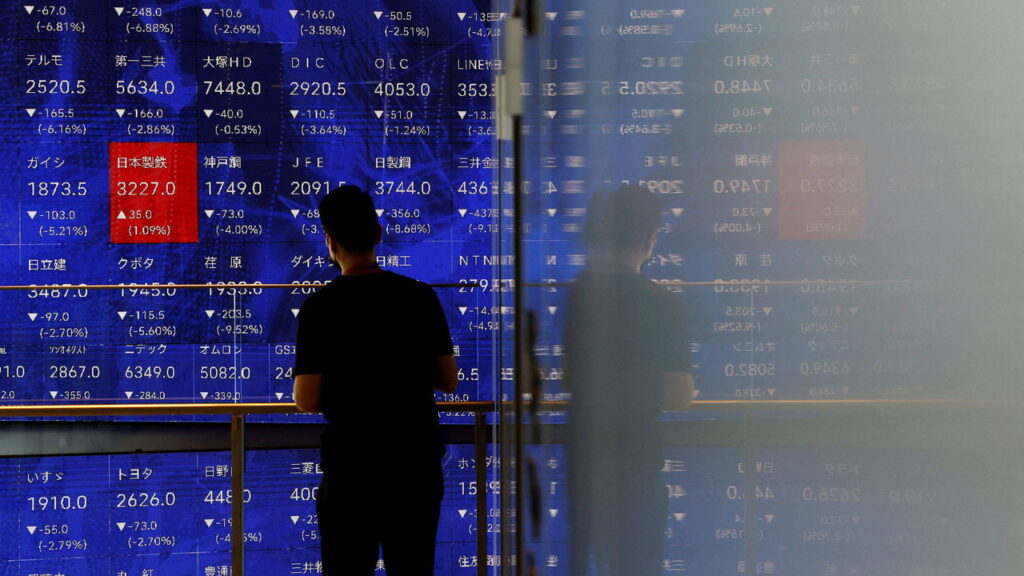As fears of an American recession spread, Japan’s markets took another beating on August 5th. The Topix plunged by 13%, marking its worst performance since 1987. This steep decline has pushed the index almost a quarter below its peak, which was reached just a month prior. Additionally, the yen has been making significant gains, with a 12% increase from its weakest point in 37 years less than a month ago.
The sharp movements in the Japanese market have far-reaching implications beyond just local investors and firms. Japan’s financial influence on the global economy means that these fluctuations could potentially contribute to further volatility in already nervous markets worldwide. The uncertainty surrounding the escalating trade war between the United States and China has only added to the market jitters, prompting investors to seek safer assets like the yen.
In light of these developments, analysts are closely monitoring the situation in Japan to gauge the potential impact on the global economy. With the stock market experiencing such drastic swings, there is growing concern about the stability of not just Japanese companies but also the broader financial system. The recent decline in the Topix has raised questions about the sustainability of Japan’s economic growth and whether the country can weather external shocks.
One key factor contributing to the market turmoil is the uncertainty surrounding the ongoing trade dispute between the United States and China. The tit-for-tat tariffs imposed by both countries have created a sense of unease among investors, leading to a flight to safe-haven assets like the yen. Japan’s export-driven economy is particularly vulnerable to disruptions in global trade, making it a closely watched barometer for the health of the global economy.
The recent performance of the Topix and the strengthening of the yen have reignited concerns about the resilience of Japan’s economy. With an aging population and sluggish domestic demand, the country has long relied on exports to drive growth. However, the escalating trade tensions and global economic slowdown threaten to disrupt this fragile balance. In this uncertain environment, policymakers in Japan are facing increasing pressure to take decisive action to bolster the economy and restore market confidence.
The continued volatility in Japan’s markets underscores the interconnectedness of the global economy and the need for coordinated efforts to address the challenges ahead. As investors brace for further turbulence, all eyes are on Japan to see how policymakers will respond to the evolving economic landscape. With the stakes higher than ever, the coming months are sure to bring more twists and turns as the world navigates the uncertain waters of a potential recession.



